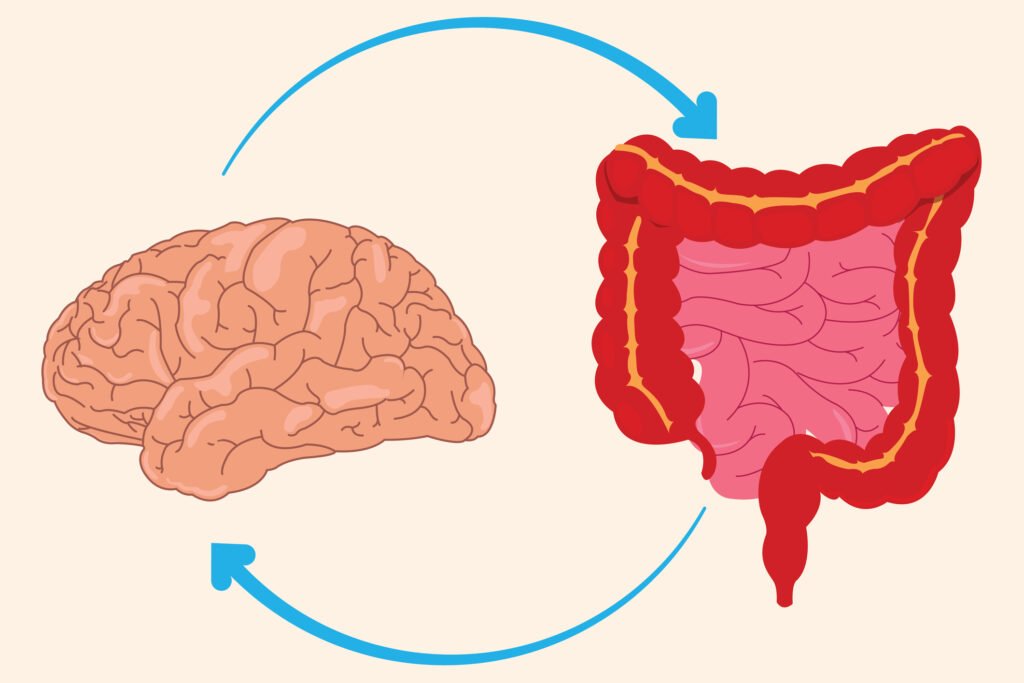
The Gut-Brain Connection: A Conversation About Your Health
The Gut-Brain Connection: A Conversation About Your Health
Ever thought about how your gut and brain communicate? It turns out, they’re part of an intricate dialogue that impacts not just your physical health, but also your emotional well-being. This connection—often referred to as the gut-brain axis—is an exciting area of research that’s reshaping our understanding of health, mental wellness, and even appetite control. By diving into how this relationship works, we can discover practical steps to boost our overall health.
The Gut-Brain Connection: It’s a Two-Way Street
Let’s Talk About Communication
At the center of this gut-brain connection is a remarkable communication network that sends signals in both directions. Your gut, often called your “second brain,” operates pretty much on its own through something known as the enteric nervous system (ENS). This complex web of neurons is responsible for how your intestines function, sending messages to your central nervous system (CNS) mainly through the vagus nerve.
What’s fascinating is how deeply these two systems affect each other. Your brain can impact gut health—ever felt a nervous stomach when stressed?—while your gut sends signals that can influence your mood. So, if you’re feeling anxious, it’s not unusual for your stomach to react too.
Key Takeaway:
By understanding this two-way street, you can take charge of your health. Taking care of your gut can lead to better mental health, and the other way around.
The Role of Your Gut Microbiome: The Unsung Heroes of Mental Health
Let’s shine a light on your gut microbiome—the diverse community of bacteria and other microorganisms living in your intestines. These little guys are vital players in the gut-brain conversation. They don’t just hang around; they actively produce neurotransmitters like serotonin, often referred to as the “feel-good” hormone.
Research shows that a varied gut microbiome is linked to lower rates of mental health issues. If your gut lacks diversity, it might be contributing to feelings of anxiety and depression, highlighting the significant impact your diet and lifestyle have on your mental health.
Practical Tip:
To nurture a healthy gut microbiome, think about eating a fiber-rich diet and including fermented foods like yogurt, kimchi, and sauerkraut. Foods high in prebiotics, such as bananas and asparagus, can also support a thriving community of beneficial bacteria.
Appetite Regulation: Listening to Your Gut’s Signals
Understanding How We Regulate Hunger
Recent research from UCSF has revealed interesting insights about how our gut helps govern our feelings of hunger and fullness. There’s a specific type of cell in our gut, known as IGLE neurons, that senses when we’re starting to feel full. In fact, these neurons may be even better at this than traditional gastric receptors.
In lab studies, activating these stretch-sensitive neurons has significantly influenced appetite in mice, suggesting we might have a more advanced system for controlling hunger than we thought.
Actionable Tip:
Practice mindfulness while eating. Taking the time to slow down, savor your food, and pay attention to your body’s hunger signals can help you reconnect with what your body needs.
Practical Applications: Using the Gut-Brain Connection in Daily Life
Understanding the gut-brain connection opens the door to various ways you can improve your health. Here are some friendly suggestions to get you started:
1. Opt for Gut-Friendly Foods: Focus on whole foods packed with nutrients, and minimize the highly processed stuff that can disrupt your gut balance.
2. Add Probiotics and Prebiotics: You can find these in various foods or as supplements. Keeping your microbiome diverse is essential for your well-being.
3. Manage Stress: Your mental health directly impacts your gut. Activities like yoga, meditation, or spending time outdoors can ease stress and, in turn, benefit your digestive health.
4. Eat Mindfully: Being present during meals can enhance how you interpret your body’s hunger signals. Notice the tastes and textures of your food, and take your time finishing your plate.
5. Seek Guidance: If you’re facing digestive issues or mental health struggles, reach out to healthcare professionals who understand the gut-brain connection. They can help you find targeted treatments that work for you.
Conclusion: A Path to Better Health
Exploring the gut-brain connection reveals just how closely linked our physical and mental health really are. By making simple changes, like improving your diet and managing stress levels, you can potentially ease various gut and mental health concerns.
Engaging with this information empowers you to make choices that enhance your quality of life. Have you ever noticed a connection between how your gut feels and your mood? I’d love to hear your thoughts! Let’s start a conversation about this fascinating interplay and how it can lead to a more integrated approach to health.
This understanding of the gut-brain connection isn’t just interesting; it’s vital for creating health strategies that consider both mind and body. When we focus on both aspects, we can open the door to more effective solutions and improved overall well-being.
Written by Alexander Babinets
Founder of Express Fitness, certified coach, and author helping people get in shape without excuses.
📍 expressfitness.ca | 📩 info@expressfitness.ca
👤 More about me → alexanderbabinets.com
Hashtags: #health #brain #connection #mental #about #understanding #signals #these #microbiome #foods #hunger #they #just #being #neurons
